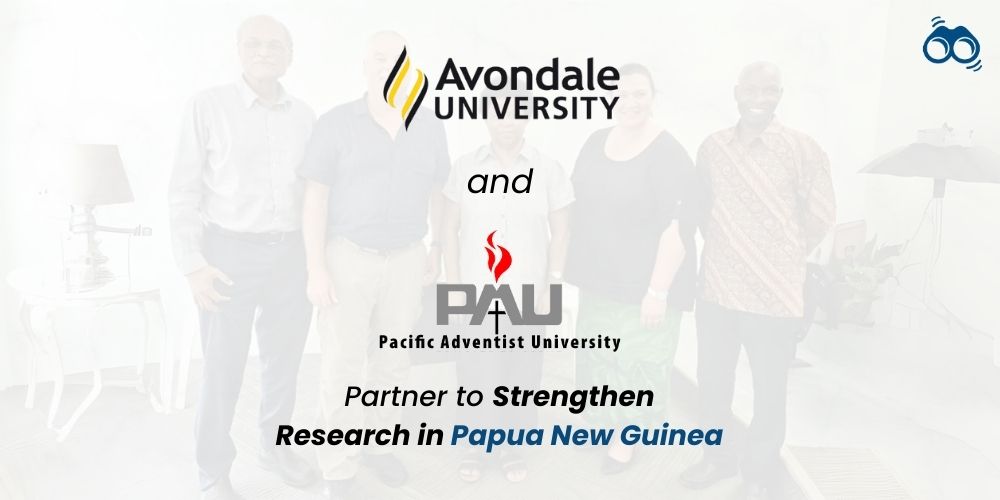Academic Collaboration: PAU and Avondale University Join Forces for Research Growth
Australia-PNG Higher Education Links Strengthened Through Research Programme
In a significant step towards advancing higher education collaboration, Avondale University and Pacific Adventist University (PAU) in Papua New Guinea (PNG) have announced a partnership to enhance research capacity across PNG universities. This initiative, known as the Research Capacity Strengthening Partnership, seeks to foster academic cooperation between PNG and Australian institutions, thereby facilitating greater knowledge exchange and development. Funded by the Higher Education Partnership grant, the programme is supported through Australia Awards PNG, which provides financial assistance to PNG universities to establish strategic collaborations. By enabling joint research projects, the partnership aims to strengthen academic expertise, improve institutional capabilities, and create meaningful opportunities for faculty and students alike.
Recognising the importance of improving PNG universities to meet international standards, both governments have prioritised initiatives that enhance higher education accessibility. Given the limited availability of international scholarships for Papua New Guineans, Professor Tracie Mafile’o of Avondale University emphasised that addressing PNG’s growing higher education demands is in the best interests of both nations. She further highlighted that strong universities contribute to nation-building by developing a skilled and knowledgeable workforce, which, in turn, supports the economic and social development of the region.
Through this collaboration, PAU stands to directly benefit as it works to increase both the volume and quality of research across PNG and the broader Pacific region. Professor Mafile’o underscored the global imbalance in knowledge production, stressing the need to empower Pacific researchers to lead studies on their regions and ensuring that their contributions are recognised internationally.
Moreover, the partnership between Avondale University and its sister institutions in the South Pacific is deemed essential for fostering international research cooperation. Professor Mafile’o noted that such connections allow Avondale to expand its global networks and support collaborative projects. She also pointed out that Avondale’s identity as a Seventh-Day Adventist University gives it a strong cultural link to the Pacific, setting it apart from other Australian universities operating in the region.
The initiative embraces a hands-on “learning-by-doing” approach, which draws upon cultural strengths, peer mentoring, and collaborative practices. Professor Mafile’o highlighted that practical engagement is both more effective and enjoyable, as individuals retain knowledge better when actively applying it. She also pointed out that the project embodies Avondale’s motto by allowing the university, as a South Pacific institution, to extend “a greater vision of world needs” to PNG. In addition, she stressed the importance of addressing colonial influences, stating that the project promotes equitable research by valuing PAU’s existing expertise and encouraging peer mentorship.
Reflecting on the partnership’s broader impact, Mafile’o expressed appreciation for the initiative, recognising that it encourages Avondale University to assess its own institutional needs while adopting a learner’s perspective, rather than always positioning itself as the expert. She acknowledged that the collaboration fosters mutual knowledge exchange, enabling both universities to give and receive insights, ultimately enriching research culture across the Pacific. By reinforcing academic cooperation and strengthening research capacity, this partnership is poised to enhance higher education in PNG, ensuring that local institutions gain greater global recognition and play a more active role in international knowledge production.
Editor’s Note:
The partnership between Avondale University and Pacific Adventist University (PAU) marks an important step in advancing research capacity and academic cooperation within Papua New Guinea’s (PNG) higher education sector. By leveraging the Higher Education Partnership grant through Australia Awards PNG, this initiative aims to create strategic opportunities for universities to collaborate, thereby improving institutional expertise and expanding research contributions. Given that global knowledge production tends to favour well-established academic centres, this collaboration aims to empower Pacific researchers to lead studies within their contexts and gain international recognition. The hands-on, peer-driven learning model promotes practical engagement and long-term academic development.
Skoobuzz underscores the significance of such initiatives, highlighting that as higher education evolves, partnerships like this will be key to fostering equity, innovation, and global participation for PNG universities














0 Comments (Please Login To Continue)